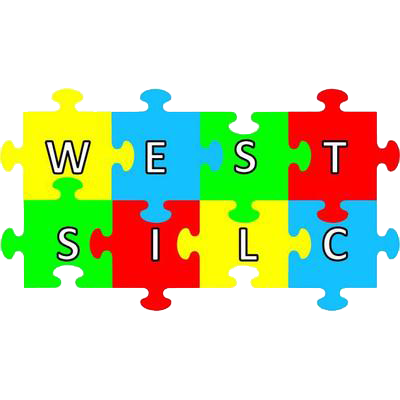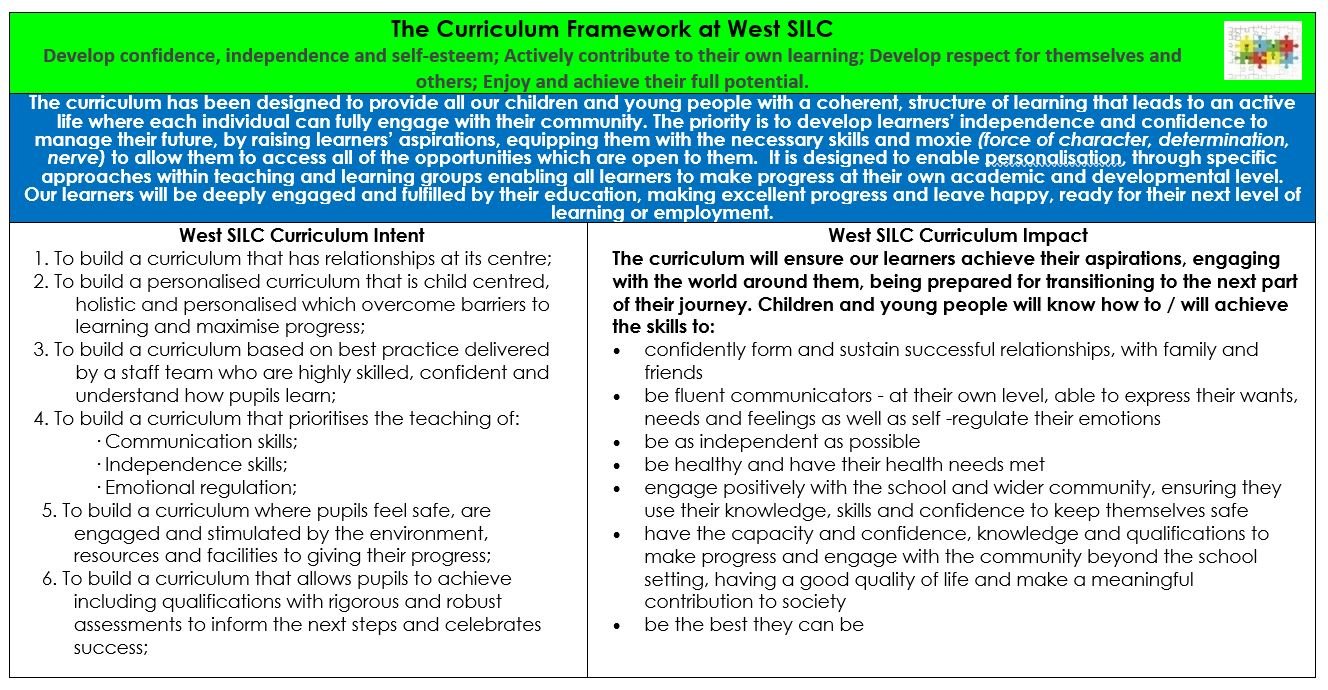
Informal Curriculum - CMLN (Farnley)
The majority of students are learning at levels that make subject specific learning inappropriate therefore they do not access a formal Creative curriculum. Activities will be incorporated into sensory and exploratory play linked to the topic and personalised learning outcomes. Work is ongoing in developing a bespoke creative expression pathway for students with CMLN which also provides opportunities for students whose physical disabilities are barriers to their creative development.
CREATIVE - Subject specific learning
Information on each subject can be found below:
Art
Music
Design and Technology
Performing Arts / Drama @ Priesthorpe
How is Art delivered across our Pathways?
Informal Curriculum - CCA
Art develops hand-eye coordination, stimulates perception, and encourages children to pay attention to the physical space around them. Art is a natural activity giving children the freedom to manipulate different materials. The majority of students are learning at levels that make subject specific learning inappropriate therefore they do not access a formal Creative curriculum. Art activities are planned into continuous provision, sensory and exploratory play to allow pupils the chance to explore and experiment in an unstructured, organic way. Engaging sensory and exploratory play uses all 5 senses and promotes integration; the ability of their brains to process all the information they receive via touch, smell, hearing, vision and occasionally taste. As children pour, dump, build, and scoop, they explore and learn about spatial concepts like full/empty, over/under, in/out. They learn pre-maths concepts along with language and vocabulary for important cognitive development. Activities are linked to the current whole school topic and personalised learning outcomes.
Semi-Formal Curriculum
Topic is the main vehicle that is used to delivery Art and consequently is on rotation, dependent on the topic. All learners in semi-formal will participate in creative learning they will explore in 2 and 3 dimensions, covering the exploration of colour, texture, shape, using a variety of media. Through creativity they will explore pattern, form and space and the development of observation and recording skills.
Teachers follow a half termly topic which is incorporate in cross curricular activities. Teachers will plan from structured pathways planning where the lessons are highly differentiated to meet the specific needs of the pupils. Earlier pathways are very practical based and draw on the experience of the pupils. This develops the higher the pathway and builds on previous knowledge learnt. Pupils are assessed on skills and knowledge and this is used to develop and enhance the learning by looking at next steps for pupils.
Formal Curriculum - Priesthorpe
At key stage 3, the creative design curriculum is intended to promote strong links between art and design technology (DT). Learners have four lessons of creative design per fortnight and these are structured in blocks of art and DT. In art lessons, pupils study artists and concepts before creating what they have designed in DT and textiles. West SILC students are taught within mainstream classes and the learning is differentiated to suit individual need. Students are taught within the creative department where they have access to a range of specialist resources and teaching. Key concepts explored include: line, tone, colour, shape, pattern, form and texture. Pupils work with a range of media to produce paintings, drawing and sculpture.
At key stage 4, students have the opportunity to study art at GCSE level.
GCSE Sketch book work:
Formal Curriculum - AIP
In creative at KS3, we have two lessons a week where the topics are personalised to fit the learners. Topics are themes such as cars, food and portraits. Students will create paintings, sculptures, and arts and crafts. Learners will use a selection of materials ranging from acrylic paint and water colours to clay and glue guns. They will learn about different artist such as David Hockney and Keith Harding in order to seek inspiration when creating their own pieces based upon the artist. They are encouraged to use ICT to research artist or to support their progression with different techniques such as drawing and knowledge of materials.
In KS4 we communicate and work closely with our partnership schools ensuring smooth transitions for students, we follow national curriculum guidance as well as the specifications for the exam boards that each individual student's schools follows.
The art curriculum is structured around themes this allows the exploration of concepts, ideas and knowledge as well as personal interpretation. Students learn the formal elements in art, the Formal Elements are the parts used to make a piece of artwork, these are: line, shape, form, tone, texture, pattern, colour and composition. Students are taught the formal elements in a variety of ways they then apply these for self - expression and personal growth.
The art teacher strives to know the SEMH need and SEND for each child, know the preferred learning style of each child, utilising the TA’s skills set and their knowledge of each child. The teacher develops techniques with the students in the classroom to cater for differing needs.
How is music delivered across our Pathways?
Informal – CCA
We believe that pupils can access and engage with music regardless of their needs and developmental level. Music stimulates both hemispheres of our brain. Music can be used to improved cognitive function, increase language development from an early age and can have a positive effect on an individual’s ability to interact positively with those around them.
The majority of students are learning at levels that make subject specific learning inappropriate therefore they do not access a formal Creative curriculum. Music sessions in CCA are planned as whole class sessions including singing, relaxation sessions and the use of musical instruments. Our sessions encourage participation from pupils at their own level. Music experiences are planned to support pupils to develop the fundamentals of communication, joint attention and social interaction skills. Activities are also incorporated into sensory and exploratory play linked to the current whole school topic and personalised learning outcomes. Groups also have experiences of singing sessions with our peripatetic music tutor.
Semi-Formal Curriculum
Topic is the main vehicle that is used to delivery Music and consequently is on rotation, dependent on the topic. Musical experiences cover exploration of sound, use of instruments and music technology, singing, moving to music and making music as individuals and as a group. Imagination covers responses to sensory experiences, representing objects and events, simple role play and performance. Design covers the identification of design needs, generating, talking about and evaluating simple designs.
Teachers will plan from structured pathways planning where the lessons are highly differentiated to meet the specific needs of the pupils. Teachers follow a half termly topic which is incorporate in cross curricular activities. Pupils take part in sing and sign sessions in some classes to enhance their communication skills. Groups also have experiences of singing sessions with our peripatetic music tutor.
Formal Curriculum - Priesthorpe
At key stage 3, students have two music lessons per fortnight within mainstream classes. Students study a range of musical genres from classical to grime and have the opportunity to learn how to play instruments including the keyboard and the ukulele.
At key stage 4, students can select music as a mainstream option choice to study towards the RSL Performing Arts Award in Music. All music lessons are taught by specialist teachers in resourced music classrooms.
How is design and technology delivered across our Pathways?
INFORMAL CURRICULUM - CCA
The majority of students are learning at levels that make subject specific learning inappropriate therefore they do not access a formal Creative curriculum. For our subject specific pupils, opportunities for design and technology are planned on a topic by topic basis dependent upon the developmental needs of the pupils. Where appropriate activities will be incorporated into sensory and exploratory play linked to the current whole school topic and personalised learning outcomes. As part of our life skills curriculum, all classes provide opportunities to develop cooking skills on a weekly basis. Pupils are given the opportunities to prepare and make food.
Semi-Formal Curriculum
Pupils will explore, colour, texture, structure and problem solve when creating models and products. They will be able to plan, design and evaluate what they make. Topic is the main vehicle that is used to deliver Design and Technology and consequently is on rotation, dependent on the topic.
Teachers follow a half termly topic which is incorporate in cross curricular activities. Teachers will plan from structured pathways planning where the lessons are highly differentiated to meet the specific needs of the pupils. Earlier pathways are very practical based and draw on the experience of the pupils. This develops the higher the pathway and builds on previous knowledge learnt. Pupils are assessed on skills and knowledge and this is used to develop and enhance the learning by looking at next steps for pupils.
Formal Curriculum - Priesthorpe
At key stage 3, the creative design curriculum is intended to promote strong links between art and design technology (DT). Learners have four lessons of creative design per fortnight and these are structured in blocks of art and DT. In art lessons, pupils study artists and concepts before creating what they have designed in DT and textiles. In addition to four lessons of creative design, key stage 3 students also have one food technology lesson per fortnight. Learners have the opportunity to participate in practical lessons as well as studying food theory, diet and health. West SILC students are taught within mainstream classes and the learning is differentiated to suit individual need. Students are taught within the creative department where they have access to a range of specialist resources and teaching.
At key stage 4, students have the option to select courses in Engineering, Construction, Textiles or Hospitality and Catering.
Formal Curriculum - Priesthorpe
At key stage 3, students have two drama lessons per fortnight within mainstream classes.
At key stage 4, partnership learners have three drama lessons per fortnight, however students can also opt to study performing arts as a mainstream option in order to achieve the RSL Performing Arts Award. Across all year groups, learners explore a range of texts, themes and stimuli to create, produce and perform dramatic responses. Drama lessons also focus on developing group work and communication skills. Lessons are delivered by specialist drama teachers and students have access to a drama studio.

















